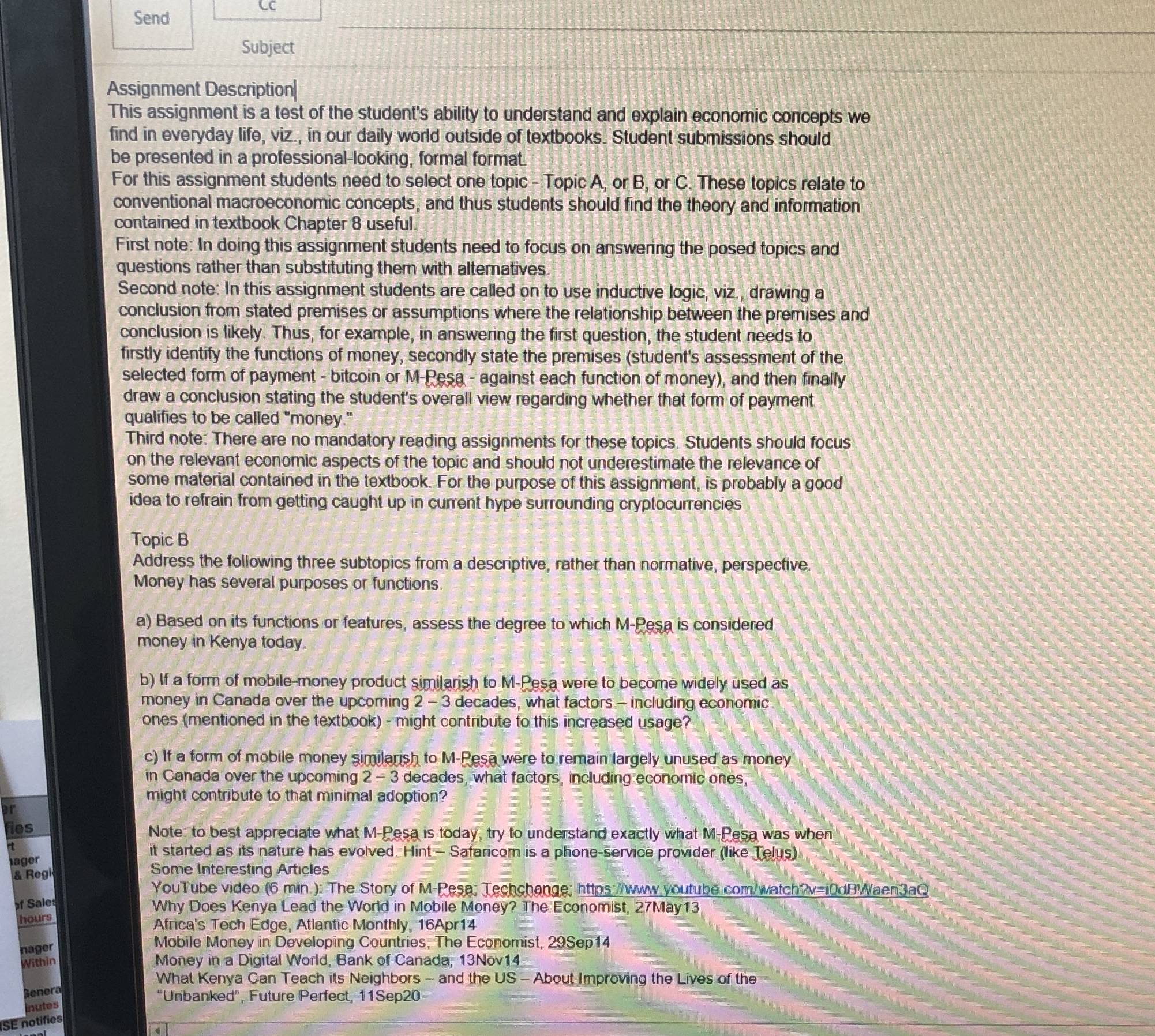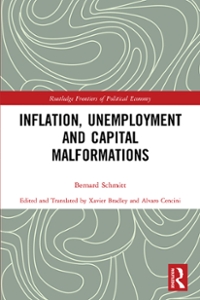Can you help with an outline for this assignment?
Send Subject Assignment Description This assignment is a test of the student's ability to understand and explain economic concepts we find in everyday life, viz., in our daily world outside of textbooks. Student submissions should be presented in a professional-looking, formal format For this assignment students need to select one topic - Topic A, or B, or C. These topics relate to conventional macroeconomic concepts, and thus students should find the theory and information contained in textbook Chapter 8 useful. First note: In doing this assignment students need to focus on answering the posed topics and questions rather than substituting them with alternatives. Second note: In this assignment students are called on to use inductive logic, viz, drawing a conclusion from stated premises or assumptions where the relationship between the premises and conclusion is likely. Thus, for example, in answering the first question, the student needs to firstly identify the functions of money, secondly state the premises (student's assessment of the selected form of payment - bitcoin or M-Pesa - against each function of money), and then finally draw a conclusion stating the student's overall view regarding whether that form of payment qualifies to be called "money." Third note: There are no mandatory reading assignments for these topics. Students should focus on the relevant economic aspects of the topic and should not underestimate the relevance of some material contained in the textbook. For the purpose of this assignment, is probably a good idea to refrain from getting caught up in current hype surrounding cryptocurrencies Topic B Address the following three subtopics from a descriptive, rather than normative, perspective. Money has several purposes or functions. a) Based on its functions or features, assess the degree to which M-Pesa is considered money in Kenya today. b) If a form of mobile-money product similarish to M-Pesa were to become widely used as money in Canada over the upcoming 2 - 3 decades, what factors - including economic ones (mentioned in the textbook) - might contribute to this increased usage? c) If a form of mobile money similarish to M-Pesa were to remain largely unused as money in Canada over the upcoming 2 - 3 decades, what factors, including economic ones, might contribute to that minimal adoption? les Note: to best appreciate what M-Resa is today, try to understand exactly what M-Pesa was when it started as its nature has evolved. Hint - Safaricom is a phone-service provider (like Telus) lager & Regi Some Interesting Articles YouTube video (6 min.) The Story of M-Resa; Techchange: https //www youtube.com/watch?v=10dBWaen3aQ of Sale Why Does Kenya Lead the World in Mobile Money? The Economist, 27May 13 hours Africa's Tech Edge, Atlantic Monthly, 16Apr14 nager Mobile Money in Developing Countries, The Economist, 29Sep14 Within Money in a Digital World, Bank of Canada, 13Nov14 What Kenya Can Teach its Neighbors - and the US - About Improving the Lives of the sener "Unbanked", Future Perfect, 11Sep20 nutes SE notifies







